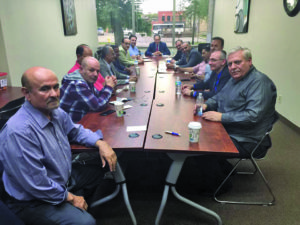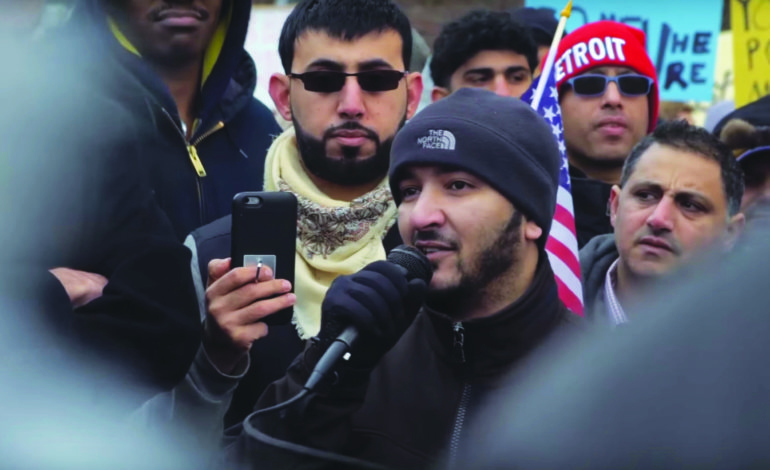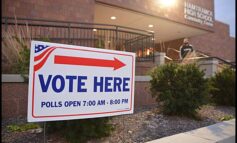DEARBORN — The daughter of Yemeni immigrants who’d fled war and poverty a couple decades ago and found home in Metro Detroit grew up feeling like she always had to prove herself more than others.
Hanan Yahya, a 23-year-old recent college graduate and current administrator at a Dearborn-based education organization, said as long as she has attended schools there, she felt a responsibility to show that Yemeni Americans, a fairly recent U.S. immigrant community, can make it — in school, in business or in taking up official positions — just as anyone else could.
As is often the case with minority students, she had to work a bit harder.
However, Yahya wasn’t working hard to prove her community’s worth to White Americans, but to her Lebanese American classmates.
Her hardships were small instances of a larger scope of prevalent disparities among the two communities, which had settled in large numbers in separate waves over the course of a century in Dearborn and neighboring cities. Most Yemeni Americans initially settled in Dearborn’s Southend, but over the past decade have moved out into other areas of the city.
Both communities departed homelands stricken by devastating civil wars, deficient resolutions and gridlock, instigated by sectarian conflicts. These divisions remain the norm within Yemen and Lebanon and between many Arab countries – backers of Sunni governments and organizations continue to quarrel with the Shi’a ones, and vice versa.
In Southeast Michigan, these clashes present themselves in similar ways in the everyday lives of Yemeni Americans and have played a major role in how local politics and elections play out.
Political battles
These contentions became apparent during the Dearborn Board of Education’s recent process of appointing a new trustee. Many Yemeni Americans supported Yemeni American applicant Adel Mozip, who unsuccessfully ran for a seat on the board last year.
A Lebanese American businesswoman, Celia Nasser, was eventually appointed, but not without bitter disagreements and three nerve-raking and well-attended meetings over her selection.
Nasser herself is a member of the Arab American Political Action Committee (AAPAC), a long-standing organization whose mission is to empower Arab Americans to participate in politics.
Tensions flared when Trustee Hussein Berry maintained his decision not to be involved in the appointment process and abstained from voting, then sued the board president and Dearborn Public Schools over allegations that the trustees had been blindsided in the appointment process.
Board meetings became heated and a social media firestorm spread.
Both sides threw their proverbial punches and a seemingly-hushed intolerance between Yemeni and Lebanese individuals became evident.
The rift
The rift was manifested – justifiably or not – through local political disputes, but for Yemeni Americans like Yahya and others, discrimination by their Lebanese neighbors is very real.
“We do have a hierarchy in the community,” she said, telling The AANews of the way locals with origins in the Levant view Arabs with roots in Yemen, Somalia or Sudan, for example.
Being Yemeni in Dearborn is like being Black in America.
A Lebanese neighbor had insulted her sons’ Yemeni American wives, according to one story Yahya had heard.
She said she never understood why some Arabs would look at fellow Arabs as inferior, as both communities tackle the same injustices in the U.S. However, she added that Lebanese Americans’ successful assimilation and strengthening political and entrepreneurial leverage was always a great motivator for her.
She described Mozip as a “pride” for her and the local Yemeni community.
For Yahya, Mozip’s struggle represents the larger strife of Yemeni Americans to escape poverty and thrive in their communities, like their fellow immigrants.
The two ethnic groups are fighting for the same causes, but Yemeni Americans seem to be always left out of the conversation, she added.
That’s how Salah Hadwan sees it, too. He’s a Hamtramck Public Schools board member, living in a city with a high concentration of Yemeni Americans.
Hadwan said the large, entrenched Arab American organizations fail to represent communities from various Arab backgrounds, like the Yemeni. So, they are often “left behind” in conversations and initiatives around educational, political and economic development.
Yemeni Americans sit on boards of Arab American organizations like the Arab-American Civil Rights League (ACRL), American-Arab Anti-Discrimination Committee (ADC), Arab American and Chaldean Council (ACC) and AAPAC.
A few years after the establishment of AAPAC, Yemeni community activits formed their own groups, including a chamber of commerce and the now-defunct Yemeni American Political Action Committee (YAPAC).

Local Yemeni Americans demonstrate against the Saudi-led strikes against their homeland in front of the Ford Centennial Library in Dearborn.
Hadwan confirmed that Yemeni organizations do exist to promote their communities, but are newer and not as well funded as large umbrella groups that serve all Arab Americans.
Alongside overcoming that challenge, Hadwan points out deeply-rooted socio-economic hurdles that keep Yemeni Americans from becoming more civically engaged.
There’s a lot of sentiment out there that no Yemeni American has ever been recommended for a post.
He sees higher drop-out rates among Yemeni American students. Many parents emphasize earning an immediate income to support a large family than spending time in school or graduating to end up with expensive college tuition bills.
Cultural and religious elements add to the hindrance, he added. Older and newly immigrated parents and grandparents still hold to customs that oppose being politically vocal or resisting authority. It’s especially more of a taboo for women to do so, he said.
Hadwan pointed to groups like the Yemeni American Leadership Association, which works to promote education and civic engagement among Yemeni American youth and highlights the importance of schooling to their families.
He also called for Arab American organizations to self-reflect on their ultimate goals, include fair representation of other Arab Americans and to “give a voice to people that can’t speak for themselves.”
“Kids are dropping out of school and all they care about is new rides,” said Wafi Alriyashi, co-owner of a game lounge in Hamtramck, echoing Hadwan’s sentiment about the need for an emphasis on education.
Alriyashi acknowledged divisions that exist within the Yemeni community, stemming from sectarian discords between Sunni and Houthi groups over which faction should lead Yemen’s government.
Overcoming these intra-ethnic challenges should make way for a more well-off Yemeni community, but even “subtle discrimination from Lebanese Americans” make it overtly harder for them to do so, he added.
He recalled an instance in which waiters at a Lebanese restaurant in Dearborn would serve other customers for more than 45 minutes before noticing him.
“We don’t like each other,” Alriyashi said of Lebanese and Yemeni Americans. “But it’s the Lebanese that don’t like Yemenis, and you not liking me makes me not like you.”
Being Yemeni in Dearborn is like being Black in America, he said.
Yet, Alriyashi said he wouldn’t endorse one candidate over another because of his or her ethnicity, even if the candidate were Yemeni. He said he’d voted for three Yemeni Hamtramck City Council members who’d forgotten about their issues once elected, just as a politician would.
“Too many are running for their own benefit, not to actually help the community,”
he said.
He asked that Yemeni American organizations work to empower their community through stressing education and familiarizing new immigrants with local and federal law and cultural norms.
Alriyashi said he hopes Arab Americans will unite in their efforts, as Arabs in today’s heated political climate are, “the most hated people in America; we’re making it worse by being divided.”
Unity
While many attest to the rift between the communities, some claim they are but dwindling remnants of deeply held and hugely impactful sectarian clashes in Yemen.
Wissam Charafeddine, a Lebanese entrepreneur, educator and activist, said he’s lived in Dearborn for decades and had never heard of such local community discord until the recent Dearborn School Board frenzy.
Charafeddine, who also works as a community liaison at local charter school, said that unlike many of the parents, negative sentiments do not exist among Arab American youth. Lebanese, Iraqi, Yemeni, Black and White American kids sit together at lunch tables; they form no ethnic or racial cliques.
“The signs of solidarity of far more prevalent than the signs of division,” he said.
He also pointed to organizations like ACCESS, an institution that serves Arabs and other minorities equally.
However, Charafeddine said most local mosques’ segregationist attitudes greatly contribute to the discords between communities.
He pointed to Sunni-led mosques that garner a predominantly Yemeni congregation and Shi’a-led mosques that attract Lebanese worshippers.
He called for religious leaders of both sects to visit and intermingle with followers of the other sect to open doors of dialogue to bring about unity among Arab Americans.
Charafeddine also pointed out that, ironically, many historians date the origins of Shi’ism in Lebanon to the migration of the Yemeni Hamadan tribe in the seventh century to south Lebanon.

Arab American leaders meet to discuss community reconciliation efforts.
Following the appointment of a new school board member and Berry’s ongoing litigation, some Arab American leaders and businessmen met to address the communities’ apparent rift.
Held by Leaders Advancing and Helping Communities (LAHC; formerly known as the Lebanese American Heritage Club), the roundtable discussion included 15 Arab Americans from both communities.
Ali Jawad, founder of the LAHC, said the meeting was called so that community organizations can discuss and learn from scattered efforts and find ways to work together in the future.
Jawad said the LAHC also aims to advance community members, regardless of their ethnic background – hence the name change.
He said that when most Lebanese Americans settled in Dearborn starting in the 70s, one would find one Arab American doctor or lawyer in the area and virtually no representation of Arabs on the City Council or the Board of Education.
Maybe we’re just an older community.
In Dearborn today, four of seven councilmembers and three of seven school board members are Arab Americans – of Lebanese origin, to be exact.
But it took decades of working through the political process to get there.
“Maybe we’re just an older community,” Jawad said.
He added that the local organizations represented at the meeting vowed to work in unison toward common goals and seek to avoid differences so that larger battle – against systematic discrimination and bigoted rhetoric about Arabs and Muslims— can be fought.
They also spoke about organizing follow-up meetings to encourage civic engagement among Yemeni youth, he said.
Jawad criticized those who turned a candidate’s bid for an appointed seat into a sectarian dispute, and advised anyone who seeks change to voice their opinions to the best listener: The voter at the polling booth.
Still, Jawad said he’s worked with Yemeni Americans since the LAHC’s inception and pledged that the community will see a time in which they overcome socio-economic hurdles, and that their Arab American allies will ride alongside them to prosperity.
Ultimately, however, Arab Americans should look to be represented by individuals who have the best interest of the communities in mind – regardless of whether they are Arab or not.
Local Yemeni American activist Wali Altahif said that when Yemeni Americans felt shunned by Arab American organizations following Nasser’s appointment, he called Jawad to coordinate the meeting and invited several organizations leaders and activists from both communities to discuss a plan for a more collaborate approach of both communities’ efforts.
“Yemeni American felt marginalized,” he said. “There’s a lot of sentiment out there that no Yemeni American has ever been recommended for a post.”
He added that no local Arab American organization includes a Yemeni as an executive staff or board member, except for YABA head Ali Baleed, who sits on a few other organizations’ boards.
However, Altahif rejected the notion of past divisions between Yemeni and Lebanese Americans and called blaming AAPAC and attacks on its members “unnecessary.”
He charged that perceived discrimination developed from a lack of collaboration between the community’s organizations and that the appointment fueled tensions among Yemeni Americans who already felt Lebanese-led organizations excluded them.
That has caused frustration that certain organizations do not speak for Yemeni Americans and often leads to lack of participation, Altahif said.
He added that Berry created confusion when he abstained from voting and that some Yemeni Americans believed he preferred that Mozip take the seat. However, Berry never publicly voiced his support for Mozip.
That’s why he said the leaders who attended the meeting “openly and honestly” spoke about working together toward mutual interests and proposed creating committees to facilitate communication.
But Altahif said he is also hopeful about the future of Yemeni Americans. Assimilation is a process, and the the community has come a long way since only a few Yemeni American professionals were present about two decades ago, he added.
“Yemeni Americans are the new kids on the block,” he said. “They’re trying to prove that they’re an important segment of this community. They want people to know they are no different than others from any other background. They’re qualified, just like anybody else.”






Leave a Reply